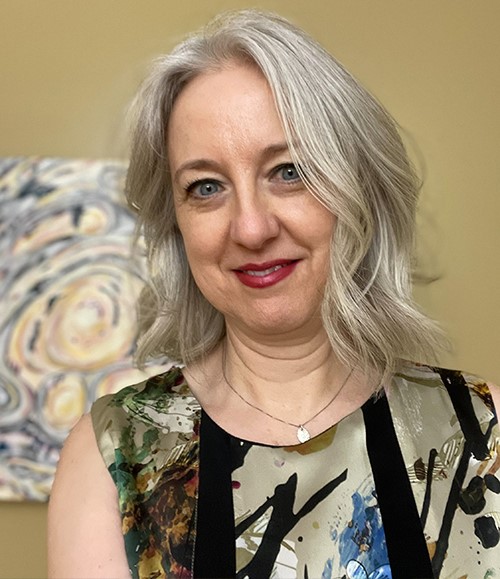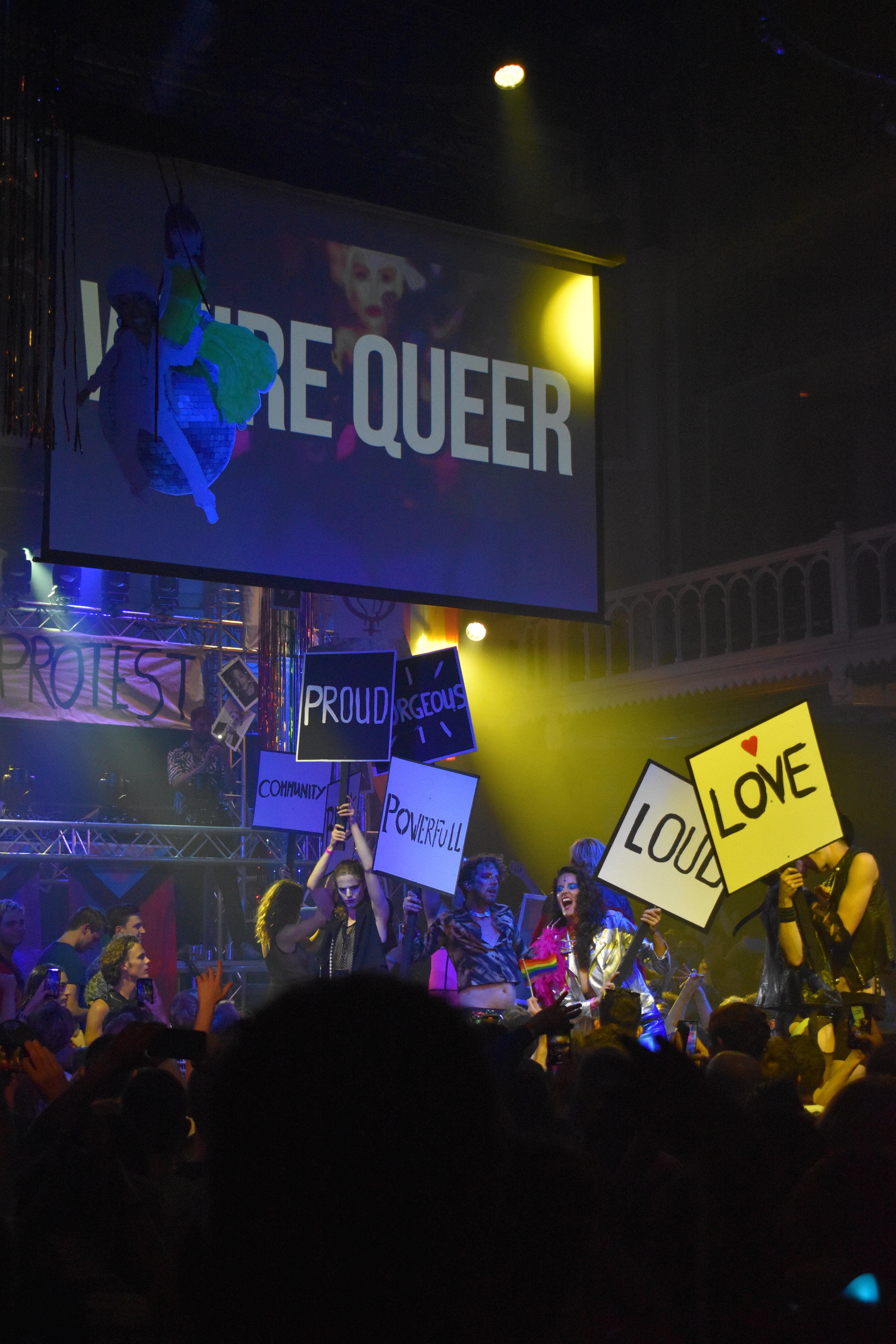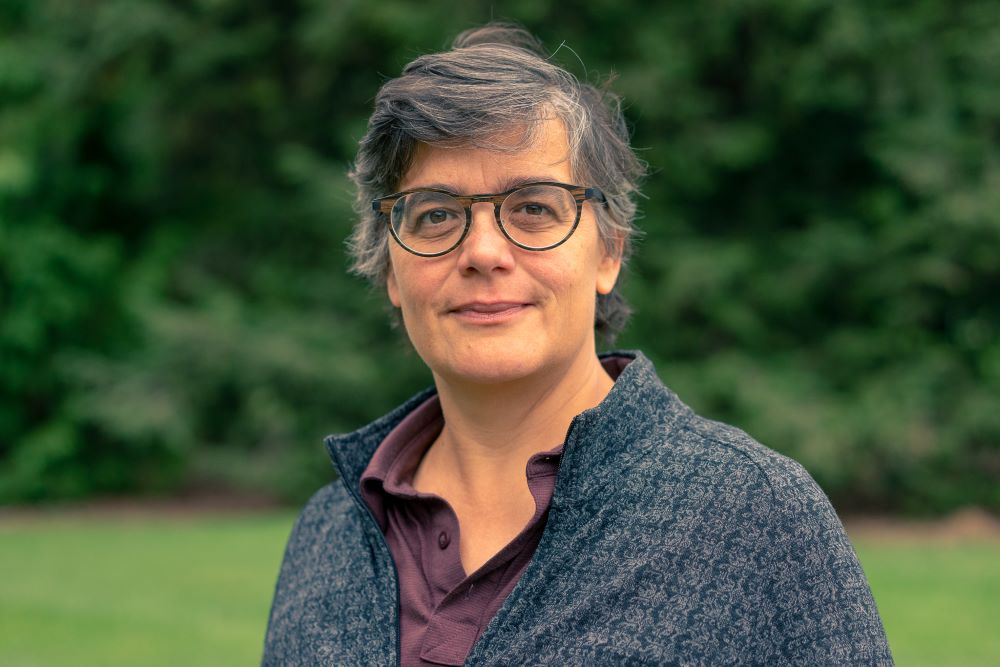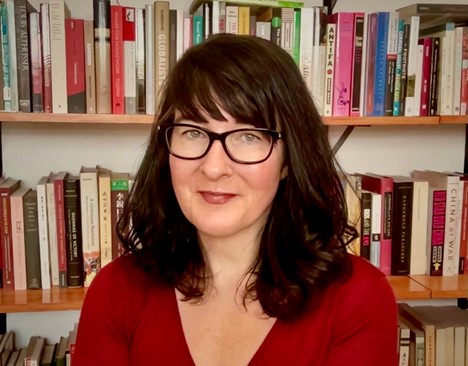MSU’s LGBTQ minor: a decade of preparing leaders and making change
June 14, 2023 - Mark Bullion and Pat Arnold
This article first appeared in MSUToday here.
Michigan State University’s minor in Lesbian, Gay, Bisexual, Transgender, Queer and Sexuality Studies is celebrating its 10-year anniversary, a milestone that represents the culmination of dedication, passion and collaboration that began with faculty from several different colleges in 2013. The program began as a partnership between the College of Arts and Letters, Lyman Briggs College, James Madison College and the Residential College in the Arts and Humanities. Currently, the program is housed in the College of Arts and Letters and is administered through the Center for Gender in Global Context, or GenCen.
The LGBTQ and Sexuality Studies minor is designed to provide opportunities for undergraduates to obtain a comprehensive, global, cross- and interdisciplinary academic experience in sexualities, gender identity and expression and queer identities and activism. It complements a wide range of majors and is especially suited for students who plan to work with and advocate for issues of diversity, inclusion and cross-cultural understanding.
“Our experiential learning opportunities are probably the most unique part of our minor,” said Stephanie Nawyn, co-director of academic programs for GenCen. Nawyn shared an example of one such opportunity: a research study internship involving the Salus Center, a Lansing-based LGBTQIA+ community and advocacy organization. The internship led to the compilation of critical data regarding health care gaps for transgender people in the Lansing area.

Over the past 10 years, growth within the program has increased. Initially designed as a specialization, the program included a few dozen students. Now a minor, this spring 2023 semester saw a record 75 students enrolled, contributing to its continued positive trajectory of attracting interest from a wide range of students both for academic and career purposes as well as personal discovery. To date, approximately 200 MSU students have graduated with a minor in LGBTQ and Sexuality Studies.
“Over the past decade, the LGBTQ studies minor has been a tremendous asset to the Michigan State community through education and empowerment,” said Vice President and Chief Diversity Officer Jabbar R. Bennett, Ph.D. “It helped our students better understand and challenge harmful social norms, fostering a campus climate that values inclusivity and equity.”
Then and now: The evolution of LGBTQ studies and culture
MSU and the East Lansing community have a rich history of LGBTQIA+ culture. East Lansing was the first city in the United States to pass employment nondiscrimination protections for sexual orientation in 1972. In the early 1990s, MSU was an early university to offer courses focused on the then-growing field of gay and lesbian studies. Demand for such courses grew in tandem with faculty expertise into the late ‘90s and 2000s.
In 2012, LGBTQ and Sexuality Studies launched as a specialization within the College of Arts and Letters. The GenCen then worked to expand the program and, in 2013, it became a full minor.
The process to change the program from a specialization to a minor was a highly collaborative and, at times, challenging effort among faculty from several colleges and the GenCen. Key faculty members who were instrumental in developing the curriculum at the time were:
- Trixie Smith, College of Arts and Letters
- Patty Rogers, Residential College in the Arts and Humanities
- Naoko Wake, Lyman Briggs College
- Julia Grant, James Madison College
- Ellen McCallum, College of Arts and Letters
McCallum, a current professor in the Department of English, introduced a literature and sexuality course in 2010 that became part of the LGBTQ studies minor. Over the span of her career, her research has focused on queer and feminist theory and other theories of representation, including those in film, media and literature. One of the major highlights of her career at MSU has been collaborating with the GenCen in course development for the LGBTQ and Sexuality studies minor.
“Taking courses in LGBTQ studies can offer students, especially those who are queer-identified, the conceptual and practical tools to work against oppression and to analyze and critique the norms we often unthinkingly inhabit,” McCallum said.
One of the primary barriers faced in establishing the minor was that the GenCen didn’t have faculty of its own to teach the courses. But this also presented a unique collaborative opportunity to draw on the expertise of faculty from colleges across the university who taught issues related to women, gender, sexuality and LGBTQ studies.
Providing students a more well-rounded, enriching academic experience, the expanded program included a capstone course in which students could take a graduate course, receive credit by working for a nongovernmental organization or pursue research.
LGBTQ & Sexuality studies within a global context
One of the unique aspects of the LGBTQ studies minor at MSU is that the program takes on a global approach, whereas other comparable programs take a U.S.-centered approach. This allows the program to be truly international, drawing on the representation of diverse sexualities and genders across cultures worldwide. Students have the opportunity to focus on global LGBTQIA+ topics, including LGBTQIA+ asylum policy, queer identity in Africa, transgender history and identity in Mexico and other areas of research.

The LGBTQ studies minor also is paired with MSU’s education abroad program Sexual Politics, Gender Identity and Sexual Orientation in Amsterdam, Netherlands, which has been offered for more than a decade. The program immerses students in the diverse and international queer cultures of Amsterdam, culminating in the famous weeklong Canal Pride celebration — part of Pride Amsterdam.
Dasianay Ward, a recent MSU graduate who majored in social work and double minored in LGBTQ studies and youth and society, said choosing to study abroad in Amsterdam was one of the best decisions she’s made in her life.
“Amsterdam was life changing,” Ward said. “I made lifelong friendships with fellow queer peers and memories I’ll remember forever. Indulging in Amsterdam’s rich queer culture also helped me explore my own identity, question the world around me and gave me different perspectives on topics surrounding gender and sexuality that I never considered before.”
Belle Hoke, a fourth-year student at MSU majoring in neuroscience and psychology with a minor in LGBTQ studies, is beyond thrilled to be taking part in the four-week education abroad program in Amsterdam this August.
“I chose to go to Amsterdam because I love to travel and I am incredibly interested in all things sex, gender and sexuality,” Hoke said. “The LGBTQ studies minor has taught me so much, in part by showing me what is possible when a culture fully embraces sex and gender diversity as something natural and even essential.”
Aminda Smith, an associate professor in the Department of History was honored to participate in the very early years of the study abroad program in Amsterdam. At the time, the program was one of only several study abroad programs in the country that focused on LGBTQ issues.
“It has been very rewarding to see the way our students have been transformed by their time in Amsterdam,” Smith said. “The program has inspired and prepared our alumni for jobs in nonprofit, government and education. It has also given them a dedication to serving their communities because so much of the program is about profound political, social and economic changes that people can make through community engagement.”
Looking forward
As the program celebrates its 10-year anniversary and embarks on the next decade, the study and visibility of LGBTQIA+ identities, histories and communities will only become more relevant. LGBTQ studies, research and advocacy will continue to promote visibility, representation and celebration of these diverse identities in higher education and beyond.
MSU will be charting this journey by increasing the number of courses focusing on the intersection of LGBTQIA+ identities with other areas of identity and culture, such as disability, race, religion and others. Furthermore, MSU faculty are exploring these topics in their courses and research.
More information on MSU LGBTQIA+ faculty research efforts can be found in Intersections, an annual online magazine published by GenCen.
In alignment with Pride Month and as an institution that recognizes and promotes a culture of inclusivity and belonging, MSU supports the LGBTQIA+ community. The Lesbian, Gay, Bisexual, Transgender, Queer and Sexuality studies minor is one of many ways the university exemplifies its commitment to diverse groups across the campus community. Learn more about the LGBTQ studies minor.
Our community is coming together to support The Gender and Sexuality Campus Center’s Unconditional Love Fund, which provides flexible assistance to students during times of need.



